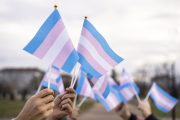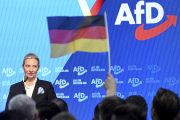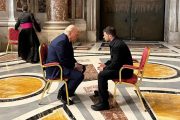
On September 10, Russia concluded its gubernatorial, regional, and local elections, with results displaying strong backing for President Vladimir Putin amid claims of vote rigging and Kyiv’s pressure to get back territories annexed by Russia.
The elections over the weekend were the first time that the people of Russian-controlled Ukrainian territories Donetsk, Luhansk, Kherson, and Zaporizhzhia voted under the Russian electoral legislation, a move that the Kyiv regime and Western nations have slammed. Russia began its military operations in Ukraine in February 2022, and presently occupies about one-fifth of the country, including the Crimean Peninsula, which it annexed in 2014; most of the Luhansk region; and considerable parts of the regions of Donetsk, Zaporizhzhia, and Kherson. After conducting referendums that have been internationally denounced, Russia announced its annexation of the latter four areas last September.
Last weekend’s elections took place in light of the ongoing counteroffensive by the Ukrainian army against Russian forces in western Zaporizhzhia and the Donetsk city of Bakhmut.
The Council of Europe said that these elections were “a flagrant violation of international law, which Russia continues to disregard.” Ukraine decried the voting as “fake elections” and criticized Moscow for breaching its sovereignty, while U.S. Secretary of State Antony Blinken refused to recognize the legitimacy of the elections.
“It is … totally unacceptable for Russia to conduct such ‘elections’ in these regions on the basis of such an illegal ‘annexation’,” Japanese Foreign Minister Yoshimasa Hayashi declared in a statement during the weekend.
Stanislav Andreychuk, co-chairman of Golos, a voter-rights group castigated as a “foreign agent” by the Russian government, claimed that instances of vote rigging in many parts of the country revealed that these were “not real elections.”
Andreychuk alleged that his group had obtained reports of opposition candidates being detained and having their cars vandalized, and, in another case, military draft papers given to election observers. “They are doing some absolutely unthinkable things,” he decried.
Kremlin critics have insisted that elections in Moscow were easily rigged owing to the capital’s system of electronic voting, which they claim was impossible to audit. Similar systems have been introduced in many other Russian regions.
Since 2014, large parts of Donetsk and Luhansk — with large Russian-speaking populations — have been controlled by Russian-backed separatists, and many of the residents there align more with Russia than the Kyiv regime. Nonetheless, local residents and Ukrainian activists in Kherson and Zaporizhzhia claim residents who refused to vote were being detained for three or four hours, said Pavlo Lysianskyi of the Eastern Human Rights Group in statements to the Associated Press (AP).
United Russia, a pro-Putin party that has dominated Russian politics for the last 20 years, was the primary contender in the elections. The overwhelming vote across Russia and in the annexed regions for the dominance of the United Russia party has reinforced the Kremlin’s long-standing domestic message that Putin is thus far the strongest custodian of stability. Across Russia, the United Russia party emerged victorious in every provincial governor’s race it contested.
Moscow Mayor Sergei Sobyanin, a close Putin ally, was among the regional leaders who were reelected. With practically no opposition, early results revealed that Sobyanin won over 75 percent of the vote in Moscow, deemed among the most opposition-leaning parts of Russia. Kremlin-backed candidates also won in the four battle-ridden regions of Donetsk, Luhansk, Zaporizhzhia, and Kherson.
All other key political forces, including opposition parties, are largely loyal to Putin and back Russian actions in Ukraine. Western opponents of Putin claimed that elections in Russia were not free, as real government critics have been silenced or — like Alexei Navalny — jailed, with media outlets opposing Putin being forced to shut down.
Political analyst Abbas Gallyamov told AP that “the most important issue in Russian politics—the issue of war and peace—is not on the agenda at all,” since no one wants to campaign in support of the conflict in Ukraine, as the conflict is not popular and it would dampen their poll ratings. Nonetheless, it is impossible to oppose Russian actions in Ukraine, as “you will be barred from running, thrown in jail and named the enemy of the country.”
Pro-government analyst Alexei Mukhin, head of the Centre for Political Information think tank in Moscow, provided a different perspective from Gallyamov’s.
“The conflict in Ukraine does influence the general mood, but people are not demoralized, they actually feel mobilized in a psychological sense. In a situation like this you would expect a feeling of fear and doubt to dominate the atmosphere. However, many people feel—more so out of pragmatism than political desire—that this is not the time for political change,” Mukhin told The European Conservative. He also stated that Western-led economic restrictions against Russia in retaliation for the Ukraine crisis have not adversely affected the day-to-day lives of Russians, and that “most people in Russia think that the special military operation was an acceptable response” by Moscow against Kyiv. Mukhin maintained that Moscow’s attack was justified, as it had to defend Russians living in the Donbas from the Kyiv regime under Volodymyr Zelensky.
The most recent elections are a prelude to the presidential elections next March, which are poised to extend Putin’s rule until 2030.
Novaya Gazeta, a Russian opposition newspaper that moved its offices to Latvia last year following a crackdown by Russian authorities, argued in an op-ed that the elections “in the third year of the war (for few believe it will end before then) and after a possible fresh wave of mobilization, will require the Russian people to simulate love for their leader once again.” However, pro-Putin observer Mukhin claimed that “Russian society does not see this [Putin’s reelection] as a problem, they see this as stability.”




